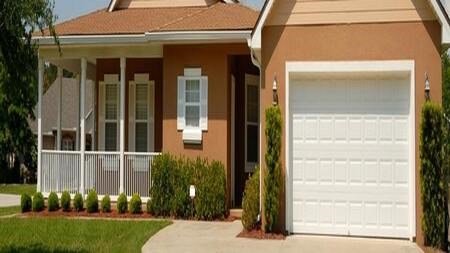A number of startling reports reveal retirees are financially distressed. One of those, The Retirement Reality Report 2022, produced by 10X Investments, says that despite warnings in the past four years, retirement still holds the prospect of deprivation and disempowerment for most South Africans. How this plays out for those already in retirement, or approaching, as indicated in Sanlam's Benchmark Survey 2022, is that 55% of retirement fund members have experienced reduced household income.
What is the rate of distress and contributing factors?
Other estimates tell us that 33% of South Africans are in debt after their retirement, so it’s clear that a big percentage of future retirees are simply going to outlive their retirement savings. There are many reasons for retirement spoilers, including insufficient savings; inflation escalations beyond expectations; and people living longer, resulting in the increasing potential of expensive and long-term health issues. It doesn't help that comprehensive medical aid schemes are now so expensive that they do not favour the retired or cash-strapped elderly. Adding further pressure, as per CNN Business (Sept 2022), is that food costs spiked 11.4% over the previous year, the largest annual increase since May 1979.
With financial cushions dwindling, many post-war boomers, once considered to represent the wealthiest generation in modern times, are now forced to accept a standard of living far below what they envisioned, regardless of having done all the right things, such as ensuring savings for 30-40 years, retirement policies, and pension fund contributions. In many cases, they need to turn to their families for financial support or move into granny flats sited on their children’s property where they are no longer burdened with maintaining the home they own.
If the decision is to weather the storm without help, the likelihood is that debt will escalate, or the individual/s may need to seek post-retirement employment - which is difficult.
An additional stressor is added if ignoring the status quo; the realisation that such unfortunate retirees may need to sell their homes in order to have funds available for their future living expenses.
For this demographic, the home is largely regarded as part of the asset portfolio that children will inherit. It also holds (usually) fond memories and is often envisaged as being the place in which to live beyond retirement into old age. This home is also thought of as the broader family's touchstone, where the familiarity and proximity to long-standing friends, family and activities bring contentment.
But when times are tough and the future looks even bleaker, a property starts to feel like a 'dead' asset. Other than when sold, it has no immediate monetary value; in fact, it is far more likely to be an exhaustive money drainer and burden given the need to undertake ongoing maintenance to secure its future value. Annual hikes relative to monthly rates & taxes, and/or levies deepen the distressing dilemma.
Property equity
But what if there was another way to solve the long-term financial care issues without the need to sell the property and use the equity in the house to support consumption during retirement? In the past, this type of service has been referred to as a 'Reverse Mortgage'. It allows qualifying homeowners who own their property outright to withdraw some of the equity in their homes immediately or through a line of credit over a period of time while they remain occupants for an agreed amount of time.
It is unlike a home loan or second mortgage because the loan does not require repayment until the borrower dies or sells the home, at which point the loan is repaid from the proceeds of the sale. Reverse Mortgages have, however, acquired a negative connotation over the years through largely unscrupulous lenders who charge exorbitant fees and interest rates.
This is one of the reasons that Chris Loker, Founder and CEO of Water Financial, prefers the term Home Equity Release Finance or Equity Release. It is a service his business has been offering for the past two years to asset-rich, cash-poor retirees to help them meet monthly costs. “Global research informs us that 94% of borrowers availing of a home equity release product felt that it provides peace-of-mind, 89% say they have a more comfortable lifestyle, and 87% confirmed it improved their quality of life.”
Peace-of-mind
The Water Financial Equity Release product is proving these sentiments. Recently two individual clients went full cycle, meaning they signed up, borrowed monthly, and settled their loans on the sale of their properties, which in both cases was within 18 months. "The parties confirmed it was a very pleasant cycle, which not only gave them time to come to terms with their approaching senior age and the need to downsize and relocate but also their families were reassured that the parents were able to continue to support themselves. It’s a matter of pride!
“This is a particular challenge when it comes to parents and their relationship with their children,” says Loker, "Most retirees and senior citizens don't want to admit they need help, nor do they want to talk about needing to enter the cycle of financial assistance. The Water Financial offering allows them to secure financial assistance with dignity. We also provide a sense of anonymity by protecting their identities other than on paperwork. Even financial advisors, retirement villages and loyalty programmes are now approaching us to help their clients who can benefit from Water Financials’ equity release plan. “
One of the conditions to get access to equity release finance, and this applies regardless of where the service is accessed, is that the property must be fully paid up. Interest is also charged but, confirms the daughter of one of Water Financial’s clients, “this is reasonable”. She also says she “highly recommends this type of service to anyone who needs to supplement their pension income, whilst giving peace-of-mind that you can stay in your home and be financially independent, instead of just existing. When your home is paid off, and you remain resident in your asset, it really is just dead money - rather enjoy it now while you are alive.”
Writer: Kerry Dimmer




